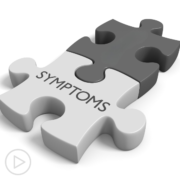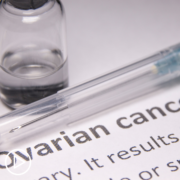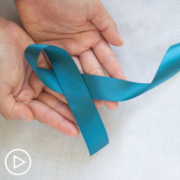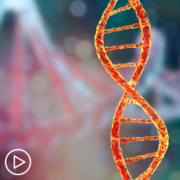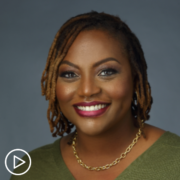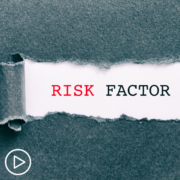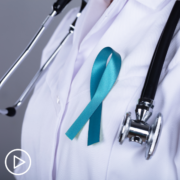Becoming Empowered and [ACT]IVATED After An Ovarian Cancer Diagnosis
Patient Empowerment Network (PEN) is committed to helping educate and empower patients and care partners in the ovarian cancer community. Ovarian cancer treatment options are ever-growing with new treatments, and it’s important for patients and families to educate themselves about testing, factors in treatment decisions, treatment types, and disparities in care. With this goal in mind, PEN kicked off the [ACT]IVATED Ovarian Cancer program, which aims to inform, empower, and engage patients to stay tuned in on the latest in ovarian cancer care.
Ovarian cancer can occur in an ovary, a fallopian tube, or the primary peritoneum – which is the thin tissue lining in the abdomen. Symptoms of ovarian cancer can vary widely and may include abdominal pain, pelvic pain, abdominal bloating, difficulty urinating, difficulty with bowel movements, or a growth or mass. PEN is proud to add information about ovarian cancer to serve more patients and their families. Cancer survivor and Empowerment Lead Mikki Goodwin interviewed expert Dr. Ebony Hoskins, a board-certified gynecologic oncologist at MedStar Washington Hospital Center and Assistant Professor of Clinical Obstetrics and Gynecology at Georgetown University Medical Center.
Factors in Ovarian Cancer Treatment Options
One essential part for ovarian cancer patients to ensure their best care is to receive genetic testing. Dr. Ebony Hoskins discussed the importance of genetic testing. “…ovarian cancer can be hereditary. Approximately 10 to 15 percent are associated with an increased risk with family history. It is now recommended that any patient with ovarian cancer get genetics testing period, even if there’s no family history that they should be offered genetics testing.”
Dr. Hoskins stressed the importance of ovarian cancer patients to know their ovarian cancer subtype, stage of disease, organs involved, and plan of attack for their specific cancer. Empowering patients with this information can help them as part of shared decision-making. “…I look at it I, II, III, IV. In terms of treatment planning, we look at that and there’s data that look and say, “What are the best options for treatment in someone?” It depends on their stage and the grade. And that’s all kind of important in terms of treatment, but as well as for prognosis.”
Ovarian Cancer Disparities
Studies show that there are disparities in ovarian cancer care and clinical trial participation. While both Hispanic women and Black women experience more barriers to quality ovarian cancer care, a study found that Black women were 14 percent less likely than white women to receive all treatments recommended by the National Comprehensive Cancer Network (NCCN) guidelines. Another study on ovarian cancer clinical trial participation found that Hispanic/Latinx patients and patients on Medicaid were less likely to participate in ovarian cancer clinical trials. Ovarian cancer patients and patient advocates can help educate themselves and others about these disparities to aid in efforts to spread awareness and changes toward better care and clinical trial participation rates.
Solutions Toward Better Ovarian Cancer Care
Clinical trial participation is vital to develop effective ovarian cancer treatment for all patients. Dr. Hoskins shared her perspective about the importance of clinical trials. “…I always tell patients, the reason we know what to give you now, treatment is based off a clinical trial. So we need these trials. We didn’t just create a new drug and just gave it. We need to know, is it going to improve survival? What are the side effects? Is it going to kill the cancer? And so it’s important to be on the cutting edge if you will, of advancement in the field. The only way I know what to give patients is based off a clinical trial.”
![Dr. Hoskins [ACT]IVATION Tip](https://powerfulpatients.org/wp-content/uploads/Screenshot-2023-06-06-at-4.16.32-PM-1030x574.png)
[ACT]IVATION Tip:
Clinical trial participation can often diminish the financial burden of cancer care. Dr. Hoskins explained some of the financial benefits and advice for patients. “The financial toxicity and sometimes coming under their trial, the drugs are covered, so you’re getting cutting-edge care that comes as maybe it’s not as costly to you, so I think, again, my activation tip for a patient is inquire with your doctor, “Am I a candidate for a clinical trial? Do you offer a clinical trial, are there clinical trials that would fit my scenario that’s local that I could go to? Are there clinical trials that are available, say, out of state that you think I will be a good fit for?” And sometimes…again, not every patient is a clinical trial candidate for a number of reasons, but asking the question, I think is huge.”
Cancer survivor Mikki Goodwin shared her patient experience and the importance of empowering yourself as a patient. “Live on purpose every day, be your best advocate, record doctor appointments, you’ll never remember everything, so it’s good to be able to play it back, take one day at a time, rest when you need to rest that is part of healing, and stay hydrated. Having cancer is not a sentence to die, but a call to live intentionally. More than anything, stay positive, more than half the battle starts in the mind.”
[ACT]IVATED Ovarian Cancer Program Resources
The [ACT]IVATED Ovarian Cancer program series takes a three-part approach to inform, empower, and engage both the overall ovarian cancer community and patient groups who experience health disparities. The series includes the following resources:
- [ACT]IVATED Ovarian Cancer Resource Guide
- [ACT]IVATED Ovarian Cancer Resource Guide en español
- What Is Ovarian Cancer? An Expert Explains
- Sexual Health After a Cancer Diagnosis: An Expert Weighs In
- Ovarian Cysts and Uterine Fibroids: Is There a Connection to Ovarian Cancer?
- What Are Common Symptoms of Ovarian Cancer?
- Understanding Stages of Ovarian Cancer: What Should Patients Know?
- What Are the Subtypes of Ovarian Cancer?
- Ovarian Cancer Risk Factors: What Patients Should Know
- Hereditary Ovarian Cancer: What’s Your Risk?
- What Should Ovarian Cancer Patients Know About Immunotherapy and Targeted Therapies?
- Ovarian Cancer and Clinical Trial Participation: What Patients Should Know
Though there are ovarian cancer disparities, patients and care partners can be proactive in educating themselves to help ensure optimal care. We hope you can take advantage of these valuable resources to aid in your ovarian cancer care for yourself or for your loved one.
[ACT]IVATION Tip:
By texting EMPOWER to +1-833-213-6657, you can receive personalized support from PENs Empowerment Leads. Whether you’re an ovarian cancer patient, or caring for someone who is, PEN’s Empowerment Leads will be here for you at every step of your journey.


